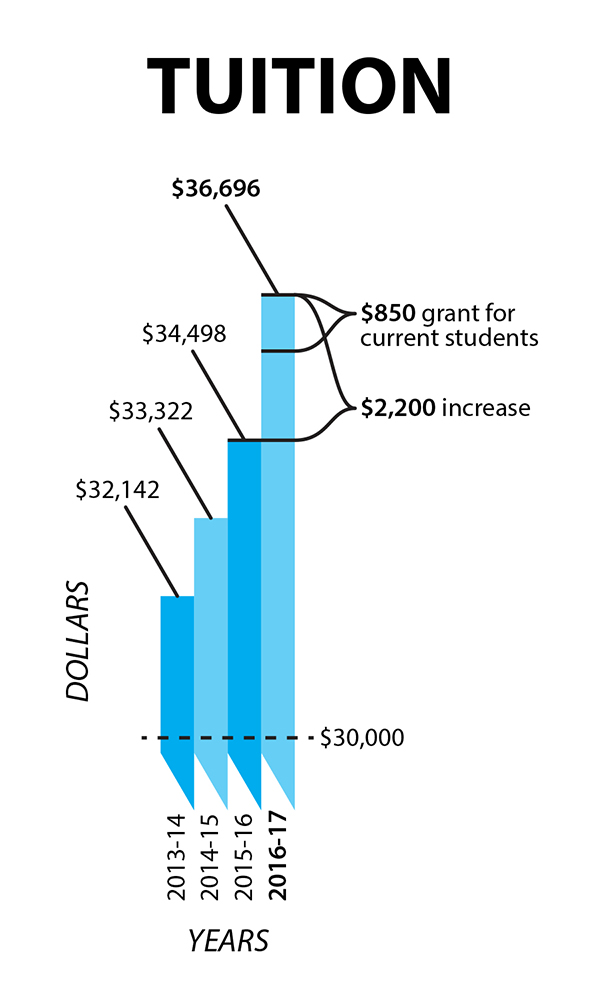Though the sticker price of tuition will increase by $2,200 for the 2016-2017 school year, every current continuing student will receive an $850 grant. Incoming students do not receive this grant, but have the opportunity to earn scholarships worth increased amounts beginning for freshmen entering in fall 2016 or later.
maintaining affordability
By next fall, tuition will increase 6.37 percent, which is larger than the trend in place the last few years of 4 percent or lower. In an effort to help maintain affordability for students, they will receive an $850 grant annually. For the 2016-2017 year, that will cause the net increase for students to be $1,350 ― within the $1,100 and $1,400 range of tuition increases for the previous two school years. Before these past few years, tuition increases at Biola over the past 30 years have usually been 5 percent or higher.
“Tuition increases historically have been no less than 5 percent and in the last couple of years…tuition has been 4 percent or lower…and so we’ve been able to hold that lower for the last three or four years,” said Michael Pierce, vice president of business and financial affairs.
due to expenses out of the university’s control
Usually, the full budget is seen by the board in January, but this year the section regarding tuition and scholarships received approval in September, the earliest it has been approved and released as public information for students.
“We try to finish the budget so that we can communicate to students and particularly to new students who are new to the university because as the complete their FAFSA or they are working through applications, and that type of thing, they want to know how much is it going to cost,” Pierce said.
Despite the multiple construction projects on campus, the increases in tuition are mainly due to expenses out of the university’s control, for example costs for employees.
“What we’re finding is that much of our costs are driven by things that are outside of our control so healthcare costs for employees ― those go up, workers compensation, because we’re such a personnel-driven institution,” Pierce said.
weighing the difference
While tuition increases each year, the annual change still affects students. Senior music education major Mikaela Curtis relies on scholarships and donors to provide for her education, so an increase is challenging for her to manage.
“I know that the average student takes out loans to make their college affordable and I know that that is the best we can do in most cases,” Curtis said. “I’m entirely on scholarships except for a few thousand and those few thousand are provided by people who generously have donated to my education so every bit that the tuition rises is money that I’m going to be asking for from…a lot of other people.”
Though she notes it may be extreme, Curtis explains these increases could even affect whether or not students can return to return to Biola because of the already high tuition cost.
Another student, undeclared sophomore Caroline Zak, weighed the difference between the current students who are being given grants whereas incoming students will receive academic scholarships of higher amounts.
“I feel that our scholarships should be increased…it would be more fair if that was changed instead of a grant,” Zak said.







